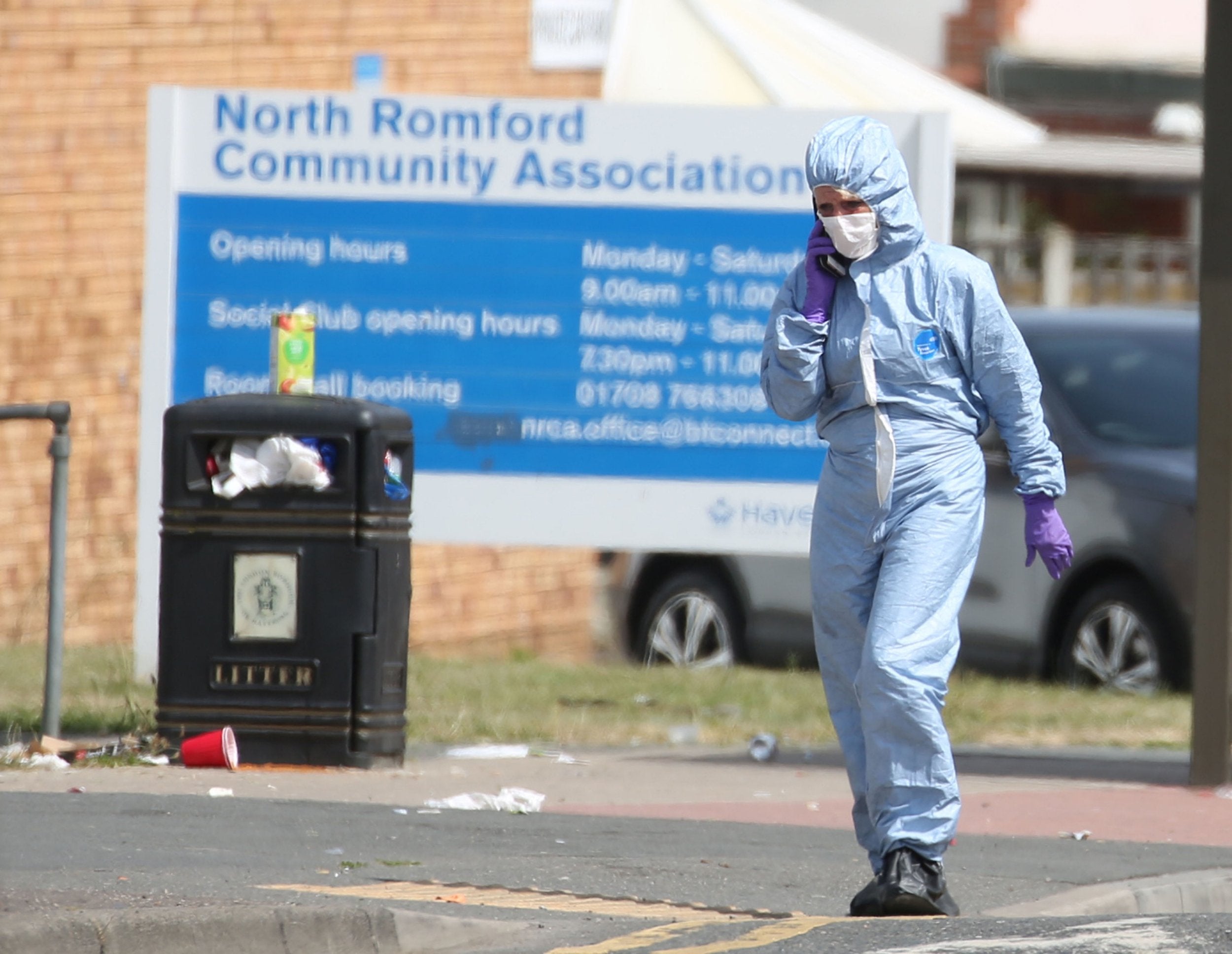‘Feral’ knife attacks where victims stabbed multiple times driving up London murder rate, police warn
'Some of the CCTV footage that we see is shocking and quite frankly feral,' says senior police officer

“Feral” knife attacks in which victims are stabbed multiple times with vicious weapons including machetes are driving up London's murder rate, police have warned.
Metropolitan Police Assistant Commissioner Martin Hewitt said that stabbings are becoming increasingly violent in the capital, where more than 70 people have been murdered so far this year.
Speaking at the London Knife Crime Summit, he said: “The violence is getting greater. If I was stood here five years ago, I would probably be talking about knife offences where there was generally a single puncture wound.
"We are now routinely seeing multiple stabbings. That is one individual stabbing somebody multiple times.
"And increasingly seeing group offending as well. By that I don't mean there's a group and one person is stabbing, I mean there's a group of people who are all using weapons.
"Some of the CCTV footage that we see is shocking and quite frankly feral when you look at a group of individuals bearing down on another person.”
He was speaking days after a 15-year-old boy was beaten and stabbed by more than five assailants in three attacks that were launched seconds apart.
Aspiring rapper Jordan Douherty died of his injuries outside a birthday party in Romford and four teenage boys have since been arrested as police continue to appeal for witnesses to come forward.
Mr Hewitt said that weapons including zombie knives, hunting knives, and machetes are being used more often, prompting a proposed ban on possessing some of the most dangerous weapons in public or private.
Over the last week alone, police in London have seized six guns, 135 knives and other weapons including CS spray.
Mr Hewitt said only sheer “luck” and first aid by police and paramedics allow stabbing victims to survive what could be fatal wounds.
“Every single time anybody uses a knife against another person that is potentially a murder,” he added.
”I have large numbers of officers now all over London who are routinely administering what you would call trauma medicine on the pavement and on the street in London to people who have been stabbed. And then the work obviously of paramedics and the doctors and everybody else that comes in.
“But the more violent the offences, the more chance there is that somebody is going to receive a fatal wound and I think that is part of why we have ended up where we are with the murder rate.”
He said reducing violent crime was a priority for the Metropolitan Police, which is using neighbourhood policing, patrols, diversion initiatives, stop and search and a dedicated Violent Crime Taskforce.
“The police response is part of the solution, but we have been clear that we cannot arrest our way out of this problem, and there needs to be a concerted effort from all agencies and communities to reduce the level of violence on our streets,” Mr Hewitt added.
Knife crime in England and Wales has rocketed by 22 per cent across in a year and robberies by a third.
Scotland Yard’s latest statistics show a 5 per cent rise in violence across London in the year to April, while knife crime is up 18 per cent, muggings up 30 per cent and youth homicide up a quarter in the same period.
The mayor’s office pointed to figures showing that the number of police officers in London had fallen to the lowest level in 20 years from 4.1 per 1,000 residents in 2010 to 3.3 officers per 1,000 today, putting the decline to “crippling government cuts to police spending”.
It said police spending per head has dropped faster in the Met than any other police force in England and Wales, due to rapid population growth combined with budget savings of £720m in the past eight years.
Sadiq Khan, who organised Wednesday’s summit, accused the government of worsening crime with police cuts, after increasing funding for Scotland Yard by £138m to recruit an additional 1,000 officers.
Home secretary Sajid Javid has vowed to prioritise police funding in an upcoming government spending review but Mr Khan said the pledge came “too late”.
“The level of knife crime across our country, including London, is simply unacceptable. We’re doing everything we can, in City Hall, to tackle this scourge,” he added.
“The figures released today show the true scale of government cuts to police funding that have hit our city harder than anywhere else in the UK.”
The government’s first ever Serious Violence Strategy was heavily criticised for omitting findings from a leaked Home Office document suggesting that budget cuts had “likely contributed” to rising violence and “encouraged” offenders.
It named drivers including changes in the drugs trade, the rise of “county lines” gangs that brutally control supply into rural areas, and incitement on social media.
The use of British-born children for sex or as drug mules has made them the largest group of potential modern slaves in the UK.
“It is drawing younger and younger people into that world, so they are becoming exposed to criminality, they are becoming exposed to violence, they are being forced into actually taking part in the violence and all of that is desensitising them even further,” Mr Hewitt said.
Barnardo’s revealed that its services were dealing with increasing numbers of children at risk of criminal exploitation, seeing them present to almost 60 per cent of its services.
Of those, nearly three quarters thought the young person had been coerced, controlled, deceived or manipulated by others into criminal activity.
“Some of these young people are forced to carry weapons, carry and sell drugs, go missing and end up in other parts of the country, and are subjected to sexual exploitation and abuse,” the charity warned.
Additional reporting by PA
